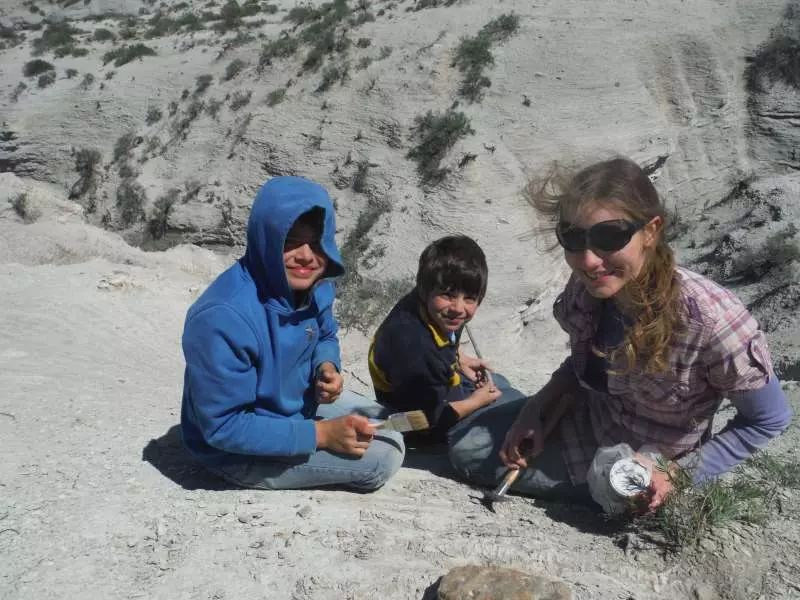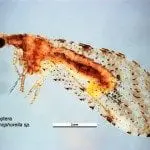
“Come see the fossil I found with Mr. David!” The boy called out to me across a ravine with an irresistible smile. Though nearly breathless, I still had a lot of momentum from running down the rough terrain, and having just accomplished my mission of the moment I kept on going to let my young friend lead me to his find. This boy, Ben, had been trying to get me or someone else to go look at this particular fossil, but we had all been so busy with our “important” projects that I hadn’t been able to go see what he found yet. Ben and his brothers had found lots of the good, small fossils we expect to find in the Niobrara formation: They found many fossil fish vertebrae, fish tail pieces, and shark’s teeth in addition to a variety of interesting rocks and bits of clams that were an abundant part of the surface gravel we walked on. I didn’t really expect this fossil to be much more than just a bigger section of fish vertebrae and tail pieces, but was thrilled to find my expectation turned out wrong.

I enjoyed getting to work on a paleontological dig in western Kansas a few weeks ago. One of my favorite parts of this particular dig was the excavation of what is probably the largest most complete fossil our team has found on this property – the same fossil that Ben wanted so badly to show someone. When he first showed it to me, I could definitely tell that there were quite a few rather large fish vertebrae as well as some other interesting smoother, more flat fossil pieces gathered on one end of the line of vertebrae. The vertebrae on the opposite end of the line seemed to be partly covered by the dirt, so I lead the boys in carefully brushing them off . . . only to find another vertebra buried just beyond it, then another, and another . . . it just kept on going!
Eventually, the rest of our dig team joined in the project and we ended up with a fairly complete fish: about 60 vertebrae, most of the tail, and even parts of the head. The whole thing measured approximately 56 inches long. Once our team was able to figure out about how much of the fish was there (and not washed away), we dug a trench around it and created a plaster jacket over the bones. After taking the appropriate steps to protect the fossils directly, we make plaster jackets by dipping pieces of burlap in wet plaster (lots of messy fun in the field!) and securely encasing the fossil we trenched around, including some of the surrounding dirt, in the plaster. Once the plaster dries, this makes a hard, custom-made case for that particular fossil so that it can be safely taken to a lab to be completely “prepped out” and made display ready.
Taking out this field jacket presented some challenges since the fossil was buried at the top of a ravine. This made for somewhat precarious positioning and our perch was the top of a dramatic wind tunnel on our windy days. But, the excavation went smoothly and all the field jackets were safely removed. Be sure to look for the “Creation Clue of the Week” next week, as we will talk about why this fish fossil is important and what it means to you.







